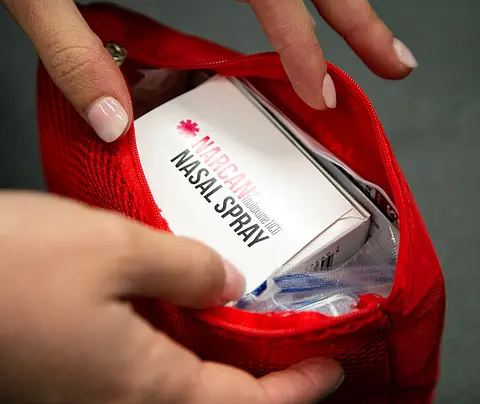The research network represents the largest pool of funding from NIH to date to study harm reduction strategies to address overdose deaths
RESEARCH TRIANGLE PARK, NC — RTI International, a nonprofit research institute, has been awarded two grants from the National Institute of Health (NIH) Helping to End Addiction Long-term Initiative, or NIH HEAL Initiative, through the National Institute on Drug Abuse, part of NIH. HEAL-funded research is seeking scientific solutions to the national opioid crisis, which took 107,000 lives in the U.S. in 2021.
The HEAL Initiative is establishing a new Harm Reduction Research Network that will test harm reduction strategies in different community settings to inform efforts to help save lives. The research network’s efforts will build on existing harm reduction research and represents the largest pool of funding from NIH to date to study harm reduction strategies to address overdose deaths.
“Harm reduction is founded on the understanding that drug use is a reality, and that strategies to prevent, minimize or eliminate the risks associated with drug use can save or improve millions of lives,” said Emmanuel Oga, M.D., MPH, a senior epidemiologist at RTI. “Our team of experts stands ready to support the network’s effort to rigorously study these strategies."
One of the grants, of which Dr. Oga and Jessica Cance, Ph.D., MPH, are multiple principal investigators, will task RTI with serving as the coordinating center for the network’s nine research projects. In its role, RTI will provide scientific coordination, facilitate data harmonization efforts and accelerate the dissemination of research findings to community partners and the general public.
“The work of this network will strengthen the body of evidence for harm reduction strategies and ultimately improve the lives of persons who use drugs,” said Dr. Cance.
The other grant, led by Dr. Alex Kral, will fund an RTI-led project evaluating various innovative harm reduction strategies in San Francisco. It will align with the network’s other projects in investigating harm reduction strategies for their reach, effectiveness, adoption, implementation and maintenance in preventing drug overdoses and other adverse outcomes.
All projects will have a community advisory board and/or people with lived experience will have paid positions to support the research.
Learn more about the Harm Reduction Research Network
Learn more about the HEAL Initiative
Learn more about RTI’s work related to interventions for opioid use disorders

RTI International Media Relations:

